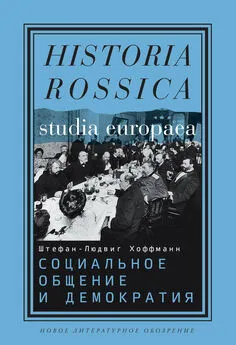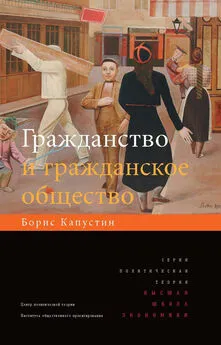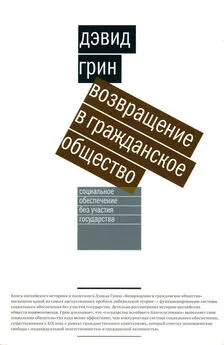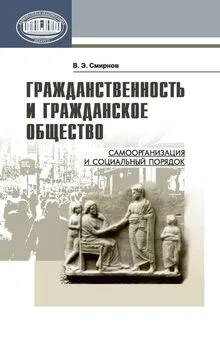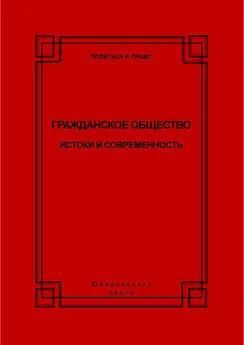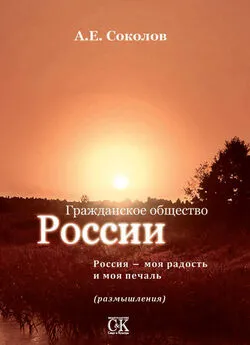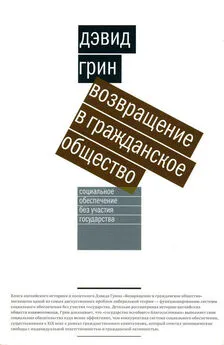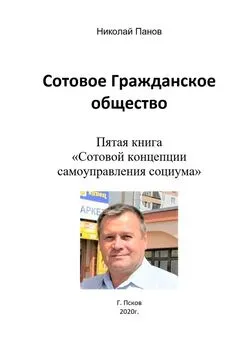Штефан-Людвиг Хоффманн - Социальное общение и демократия. Ассоциации и гражданское общество в транснациональной перспективе, 1750-1914
- Название:Социальное общение и демократия. Ассоциации и гражданское общество в транснациональной перспективе, 1750-1914
- Автор:
- Жанр:
- Издательство:Литагент НЛО
- Год:2017
- Город:Москва
- ISBN:978-5-4448-0873-3
- Рейтинг:
- Избранное:Добавить в избранное
-
Отзывы:
-
Ваша оценка:
Штефан-Людвиг Хоффманн - Социальное общение и демократия. Ассоциации и гражданское общество в транснациональной перспективе, 1750-1914 краткое содержание
Социальное общение и демократия. Ассоциации и гражданское общество в транснациональной перспективе, 1750-1914 - читать онлайн бесплатно ознакомительный отрывок
Интервал:
Закладка:
21
Müller M. G. Die Historisierung des bürgerlichen Projekts – Europa, Osteuropa und die Kategorie der Rückständigkeit // Tel Aviver Jahrbuch für deutsche Geschichte. Jg. 29. 2000. S. 163–170, 167.
22
Ср.: Haupt H. G., Kocka J. (Hrsg.), Geschichte und Vergleich. Frankfurt, 1996; а также критику у Espagne M . Sur les limites du comparatisme en histoire culturelle // Genèse. T. 17. 1994. P. 102–121; Paulmann J . Internationaler Vergleich und interkultureller Transfer. Zwei Forschungsansätze zur europäischen Geschichte des 18. bis 20. Jahrhunderts // Historische Zeitschrift. Bd. 267. 1998. S. 649–685; Werner M., Zimmermann B . Vergleich, Transfer, Verflechtung. Der Ansatz der Histoire croisée und die Herausforderung des Transnationalen // Geschichte und Gesellschaft. Jg. 29. 2002. S. 607–636; Conrad S., Randeria S . Geteilte Geschichte. Europa in der postkolonialen Welt // Idem . (Hrsg.), Jenseits des Eurozentrismus. Postkoloniale Perspektiven in den Geschichts- und Kulturwissenschaften. Frankfurt, 2002. S. 9–49.
23
Ср., например, интересный польский случай: Walicki A . Poland between East and West. The Controversies over Self-Definition and Modernisation in Partitioned Poland. Cambridge, 1994; Jedlicki J . A Suburb of Europe. Nineteenth-Century Polish Approaches to Western Civilization. Budapest, 1999; или дискуссию об «особом пути» Германии, об этом: Trentmann F. Introduction // Idem . (Ed.), Paradoxes of Civil Society. New Perspectives on Modern German and British History. Providence, 2000. P. 3–45.
24
Схожим образом строит свою аргументацию и Даниэль Роджерс в своем образцовом транснациональном исследовании социальной политики: «By masking interdependencies between nations, freezing historically contingent processes into ideal types, and laying across them a grid of social and political characteristics, the method of comparison throws a powerful light on differences. ‹…› Atlantic-era social politics had its origin not in its nation-state containers, not in a hypothesized „Europe“ nor an equally imagined „America“, but in the world between them». Rodgers D. T . Atlantic Crossings. Social Politics in a Progressive Age. Cambridge (Mass.), 1998. P. 5.
25
Ср. среди прочего два сборника: Bermeo N., Nord P . (Eds.), Civil Society Before Democracy. Lessons from Nineteenth-Century Europe. Boston, 2000; Hildermeier M. u. a . (Hrsg.), Europäische Zivilgesellschaft in Ost und West. Begriff, Geschichte, Chancen. Frankfurt, 2000; а также Bradley J . Subjects into Citizens. Societies, Civil Society, and Autocracy in Tsarist Russia // American Historical Review. Vol. 107. 2002. P. 1094–1123.
26
Nipperdey T . Verein als soziale Struktur in Deutschland im späten 18. und frühen 19. Jahrhundert // Idem . Gesellschaft, Kultur, Theorie. Göttingen, 1976. S. 174–205, 174.
27
Ср. в качестве введения к этим понятиям: Trentmann F. Introduction, и классическое исследование Юргена Хабермаса: Habermas J . Strukturwandel der Öffentlichkeit. Untersuchungen zu einer Kategorie der bürgerlichen Gesellschaft [1962]. Frankfurt, 1991.
28
Agulhon M . Vers une histoire des associations // Esprit. T. 6. 1978. P. 13–18.
29
Ср. в качестве образца: Judson P. M . Exclusive Revolutionaries. Liberal Politics, Social Experience, and National Identity in the Austrian Empire, 1848–1914. Ann Arbor, 1996.
30
Im Hof U . Das gesellige Jahrhundert. Gesellschaft und Gesellschaften im Zeitalter der Aufklärung. München, 1982.
31
Reichardt R. Zur Soziabilität in Frankreich beim Übergang vom Ancien Régime zur Moderne // François E . (Ed.), Sociabilité et société bourgeoise en France, en Allemagne et en Suisse, 1750–1850. Paris, 1986. P. 27–41, 36; Agulhon M . Pénitents et Francs Maçons de l’ancienne Province. Paris, 1984. P. 166–211. Фундаментальное исследование о предшественниках модерных ассоциаций: Hardtwig W . Genossenschaft, Sekte, Verein in Deutschland. Bd. 1: Vom Spätmittelalter bis zur Französischen Revolution. München, 1997.
32
Van Horn Melton J . The Rise of the Public in Enlightenment Europe. Cambridge, 2001. P. 252.
33
Koselleck R . Kritik und Krise. Eine Studie zur Pathogenese der bürgerlichen Welt [1959]. Frankfurt, 1989; Furet F. 1789 – Vom Ereignis zum Gegenstand der Geschichtswissenschaft. Frankfurt, 1980.
34
Jacob M. C . Living the Enlightenment. Freemasonry and Politics in Eighteenth-Century Europe. New York, 1991; Saunier E . Révolution et sociabilité en Normandie au tournant des XVIIIe et XIXe siècles: 6000 franc-maçons normands de 1750 à, 1830. Rouen, 1995; Smith D. Freemasonry and the Public in Eighteenth-Century Russia // Eighteenth-Century Studies. Vol. 29. 1995. P. 25–44; Idem . Working the Rough Stone. Freemasonry and Society in Eighteenth-Century Russia. DeKalb, 1999; из более ранних работ по русским ложам: Соколовская Т. Русское масонство и его значение в истории общественного движения (XVIII и первая четверть XIX столетия). М., [1907] 1999; Bullock S. C . Revolutionary Brotherhood. Freemasonry and the Transformation of the Amercian Social Order, 1730–1840. Chapel Hill, 1996.
35
Roche D. Die sociétés de pensée und die aufgeklärten Eliten im 18. Jahrhundert // Reichardt R., Gumbrecht H. – U. (Hrsg.), Sozialgeschichte der Aufklärung in Frankreich. München, 1981. S. 77–115, 115; в общем: Idem . Les républicains des lettres. Gens de culture et Lumières au XVIIIe siècle. Paris, 1988. В Англии клуб также был «средой для смешанных собраний» и находился «в согласии, а не в оппозиции с традиционными элитами». Klein L. E. Politeness and the Interpretation of the British Eighteenth-Century // Historical Journal. Vol. 45. 2002. P. 869–898, 894.
36
Ср.: Jacob M.C. Enlightenment. Ch. 1 & 2.
37
Clark P . British Clubs and Societies 1580–1800. The Origins of an Associational World. New York, 2000. P. 312; а также в общем: Idem . Sociability and Urbanity. Clubs and Societies in the Eighteenth-Century City. Leicester, 1986; Money J . Experience and Identity. Birmingham and the West Midlands, 1760–1800. Manchester, 1977. P. 98–102; Borsay P. , The English Urban Renaissance. Culture and Society in the Provincial Town, 1660–1770. Oxford, 1991. Ch. 10: Civility and Sociability; Brewer J. , The Pleasures of Imagination. English Culture in the Eighteenth Century. New York, 1997. P. 98–113.
38
Jacob M. C . Enlightenment. P. 72.
39
Цит. по: Schindler N . Freimaurerkultur im 18. Jahrhundert. Zur sozialen Funktion des Geheimnisses in der entstehenden bürgerlichen Gesellschaft // Berdahl R. M. et. al. (Hrsg.), Klassen und Kulturen. Frankfurt, 1982. S. 205–262, 210.
40
Цит. по: Espagne M . Welches sind die Bestandteile der Aufklärung? Aus dem Pariser Nachlaß eines Wetzlarer Freimaurers // Jb. der deutschen Schillergesellschaft. Bd. 32. 1988. S. 28–50, 33.
Интервал:
Закладка:
